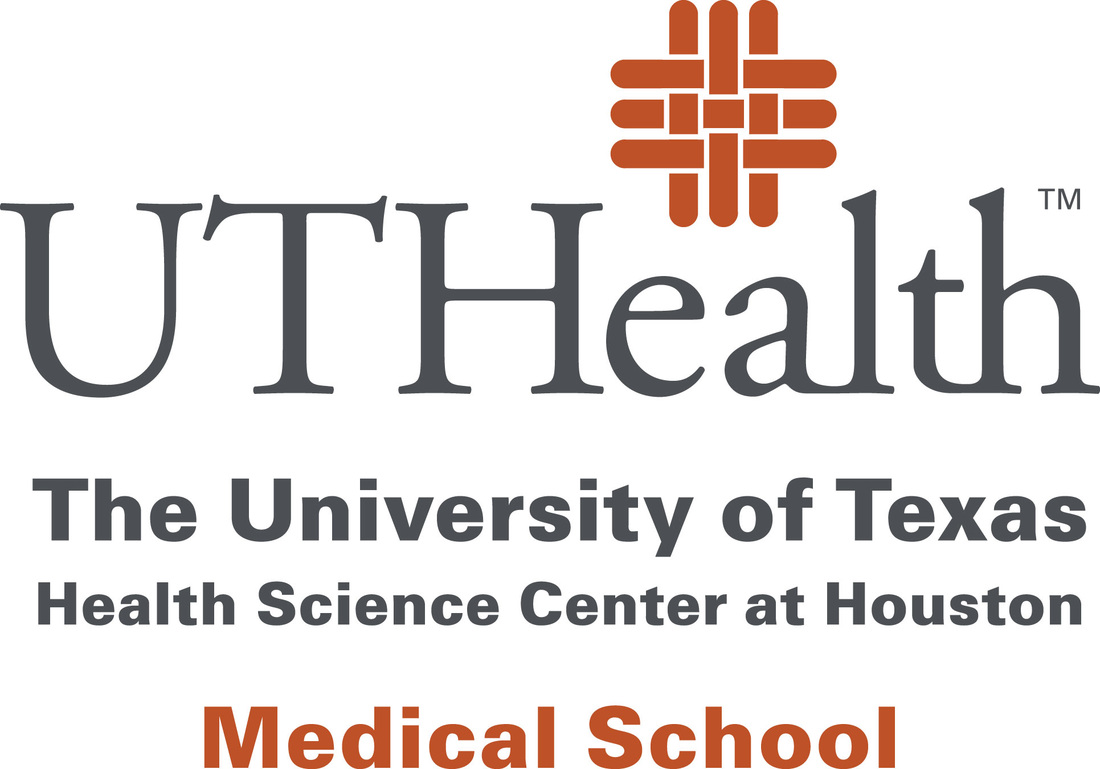
Kartik Venkatachalam, Ph.D.
Director, UT Lysosomal Storage Disease Center
Assistant Professor, Department of Integrative Biology and Pharmacology
University of Texas, School of Medicine, Houston
Dr. Venkatachalam's research involves the use of Drosophila (fruit fly) models of LSDs to understand the mechanistic links between lysosomal dysfunction and defects in neuronal development and viability. The insights gained from the Drosophila models will be tested in primary cell lines obtained from human patients and murine models to develop therapeutic concepts aimed at ameliorating the neurological sequelae of LSDs.
Current funding related to LSDs: NIH R01, NS081301, "Alterations in synaptic growth and lipid-raft organization in a fly MLIV model"
Email Dr. Venkatachalam
Dr. Venkatachalam's lab website
Profile
Director, UT Lysosomal Storage Disease Center
Assistant Professor, Department of Integrative Biology and Pharmacology
University of Texas, School of Medicine, Houston
Dr. Venkatachalam's research involves the use of Drosophila (fruit fly) models of LSDs to understand the mechanistic links between lysosomal dysfunction and defects in neuronal development and viability. The insights gained from the Drosophila models will be tested in primary cell lines obtained from human patients and murine models to develop therapeutic concepts aimed at ameliorating the neurological sequelae of LSDs.
Current funding related to LSDs: NIH R01, NS081301, "Alterations in synaptic growth and lipid-raft organization in a fly MLIV model"
Email Dr. Venkatachalam
Dr. Venkatachalam's lab website
Profile

Mary Kay Koenig, M.D.
Clinical Co-director, UT Lysosomal Storage Disease Center
Associate Professor, Department of Pediatrics, Division of Child & Adolescent Neurology
University of Texas, School of Medicine, Houston
Dr. Koenig is a child & adult neurologist with training in Biochemistry, Microbiology, Pediatrics, and Neurology. Her clinical and research interests include Mitochondrial Disorders, Tuberous Sclerosis Complex, Neurometabolic Disorders, and Lysosomal Storage Disease. Dr. Koenig has extensive experience in clinical studies and is currently heading a multi-center, international, clinical trial for children and adults with Tuberous Sclerosis Complex.
Email Dr. Koenig
Profile
Clinical Co-director, UT Lysosomal Storage Disease Center
Associate Professor, Department of Pediatrics, Division of Child & Adolescent Neurology
University of Texas, School of Medicine, Houston
Dr. Koenig is a child & adult neurologist with training in Biochemistry, Microbiology, Pediatrics, and Neurology. Her clinical and research interests include Mitochondrial Disorders, Tuberous Sclerosis Complex, Neurometabolic Disorders, and Lysosomal Storage Disease. Dr. Koenig has extensive experience in clinical studies and is currently heading a multi-center, international, clinical trial for children and adults with Tuberous Sclerosis Complex.
Email Dr. Koenig
Profile

Hope Northrup, M.D.
Clinical Co-director, UT Lysosomal Storage Disease Center
Professor and Director, Division of Medical Genetics
Department of Pediatrics
University of Texas, School of Medicine, Houston
Email Dr. Northrop
Profile
Clinical Co-director, UT Lysosomal Storage Disease Center
Professor and Director, Division of Medical Genetics
Department of Pediatrics
University of Texas, School of Medicine, Houston
Email Dr. Northrop
Profile
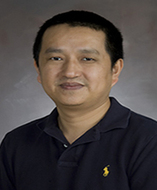
Guangwei Du, Ph.D.
Assistant Professor, Department of Integrative Biology and Pharmacology
University of Texas, School of Medicine, Houston
Dr. Du’s research focuses on lipid signaling and metabolism, and how the dysregulation of these processes result in disease. Because lysosomal dysfunction affects the metabolism of lipids and other macromolecules, Dr. Du’s studies have direct impact on understanding the pathogenesis of LSDs, and will likely to lead to new therapies for LSDs.
Email Dr. Du
Profile
Assistant Professor, Department of Integrative Biology and Pharmacology
University of Texas, School of Medicine, Houston
Dr. Du’s research focuses on lipid signaling and metabolism, and how the dysregulation of these processes result in disease. Because lysosomal dysfunction affects the metabolism of lipids and other macromolecules, Dr. Du’s studies have direct impact on understanding the pathogenesis of LSDs, and will likely to lead to new therapies for LSDs.
Email Dr. Du
Profile
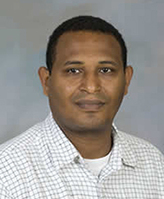
Alemayehu Gorfe, Ph.D.
Assistant Professor, Department of Integrative Biology and Pharmacology
University of Texas, School of Medicine, Houston
Email Dr. Gorfe
Dr. Gorfe's lab website
Profile
Assistant Professor, Department of Integrative Biology and Pharmacology
University of Texas, School of Medicine, Houston
Email Dr. Gorfe
Dr. Gorfe's lab website
Profile
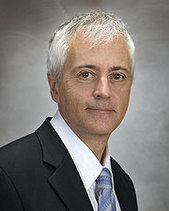
John F. Hancock, MA, MB, BChir, PhD, ScD
Vice-Dean of Research
Executive Director, Institute of Molecular Medicine,
Professor and Chairman, Department of Integrative Biology and Pharmacology
John S Dunn Distinguished University Chair in Physiology and Medicine
University of Texas, School of Medicine, Houston
Dr. Hancock’s laboratory studies basic mechanisms of mammalian cell signaling. He is especially interested in the function of Ras proteins. These small GTP binding proteins operate as molecular switches in signal transduction pathways and play critical roles in learning and memory. Furthermore, recent evidence suggests that Ras and related MAPK signaling may be involved in the pathogenesis of LSDs. Therefore, understanding the basic biology of Ras has major implications for the development of novel therapeutics for tackling LSDs.
Email Dr. Hancock
Profile
Vice-Dean of Research
Executive Director, Institute of Molecular Medicine,
Professor and Chairman, Department of Integrative Biology and Pharmacology
John S Dunn Distinguished University Chair in Physiology and Medicine
University of Texas, School of Medicine, Houston
Dr. Hancock’s laboratory studies basic mechanisms of mammalian cell signaling. He is especially interested in the function of Ras proteins. These small GTP binding proteins operate as molecular switches in signal transduction pathways and play critical roles in learning and memory. Furthermore, recent evidence suggests that Ras and related MAPK signaling may be involved in the pathogenesis of LSDs. Therefore, understanding the basic biology of Ras has major implications for the development of novel therapeutics for tackling LSDs.
Email Dr. Hancock
Profile
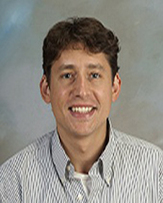
Ilya Levental, Ph.D.
Assistant Professor, Department of Integrative Biology and Pharmacology
CPRIT Scholar for Cancer Research
University of Texas, School of Medicine, Houston
Dr. Levental’s research focuses on the molecular and biophysical mechanisms of subcellular trafficking in experimental systems ranging from synthetic model membranes to live cells. Dr. Levental Is committed to understanding how membrane structure contributes to the trafficking and biogenesis of endosomal/lysosomal vesicles. Because the molecular etiologies of several LSDs are related to endosomal trafficking and biogenesis, Dr. Levental’s studies will likely reveal molecular targets for therapeutic intervention in LSDs.
Email Dr. Levental
Dr. Levental's lab website
Profile
Assistant Professor, Department of Integrative Biology and Pharmacology
CPRIT Scholar for Cancer Research
University of Texas, School of Medicine, Houston
Dr. Levental’s research focuses on the molecular and biophysical mechanisms of subcellular trafficking in experimental systems ranging from synthetic model membranes to live cells. Dr. Levental Is committed to understanding how membrane structure contributes to the trafficking and biogenesis of endosomal/lysosomal vesicles. Because the molecular etiologies of several LSDs are related to endosomal trafficking and biogenesis, Dr. Levental’s studies will likely reveal molecular targets for therapeutic intervention in LSDs.
Email Dr. Levental
Dr. Levental's lab website
Profile
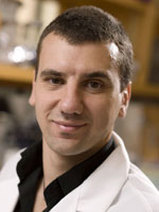
Marco Sardiello, Ph.D.
Assistant Professor, Department of Molecular and Human Genetics,
Baylor College of Medicine
Jan and Dan Duncan Neurological Research Institute, Texas Children’s Hospital
Dr. Sardiello’s research focuses on testing lysosomal enhancement as a therapeutic strategy to treat neuronal ceroid lipofuscinoses (NCLs) and other LSDs. Molecules able to improve lysosome-dependent degradative pathways—and hence, disease outcomes are being tested in mouse and Drosophila models of LSDs in order to select the most suitable ones for designing clinical trials with LSD patients.
Current funding related to LSDs: NIH R01, NS079618, “Modulation of lysosomal function for the treatment of neural ceroid lipofuscinosis”
Email Dr. Sardielo
Profile
Assistant Professor, Department of Molecular and Human Genetics,
Baylor College of Medicine
Jan and Dan Duncan Neurological Research Institute, Texas Children’s Hospital
Dr. Sardiello’s research focuses on testing lysosomal enhancement as a therapeutic strategy to treat neuronal ceroid lipofuscinoses (NCLs) and other LSDs. Molecules able to improve lysosome-dependent degradative pathways—and hence, disease outcomes are being tested in mouse and Drosophila models of LSDs in order to select the most suitable ones for designing clinical trials with LSD patients.
Current funding related to LSDs: NIH R01, NS079618, “Modulation of lysosomal function for the treatment of neural ceroid lipofuscinosis”
Email Dr. Sardielo
Profile
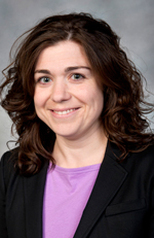
Laura Segatori, Ph.D.
Assistant Professor, Departments of Chemical & Biomolecular Engineering, Biochemistry & Cell Biology, and Bioengineering
Rice University, Houston
Dr. Segatori’s group uses chemical and biological approaches to engineer the cell’s quality control system and restore protein homeostasis in in vitro models of LSDs. The lab’s current research efforts focus on enhancing autophagic clearance of storage materials, and restoring the folding, processing and activity of the unstable lysosomal enzyme variants associated with neurodegenerative LSDs.
Current funding related to LSDs:
1. NSF / CBET, 1336053, “Understanding the impact of engineered nanoparticles on the lysosome-autophagy system”
2. NIH, R21, “Virus nanoparticles as autophagy activators”, co-PI: Junghae Suh, Rice University, Bioengineering.
3. Hamill New Innovator Award, Rice University IBB, “Genetically encoded nanotherapeutics for neurodegenerative diseases”, co-PI: Junghae Suh, Rice University, Bioengineering.
4. Welch Foundation, C1824, “Physicochemical properties of nanoparticles at the interface with biological systems”
5. NSF / CBET (BBBE), 1254318, “CAREER: Engineering cellular clearance pathways using nano particles”
Email Dr. Segatori
Dr. Segatori's lab website
Profile
Assistant Professor, Departments of Chemical & Biomolecular Engineering, Biochemistry & Cell Biology, and Bioengineering
Rice University, Houston
Dr. Segatori’s group uses chemical and biological approaches to engineer the cell’s quality control system and restore protein homeostasis in in vitro models of LSDs. The lab’s current research efforts focus on enhancing autophagic clearance of storage materials, and restoring the folding, processing and activity of the unstable lysosomal enzyme variants associated with neurodegenerative LSDs.
Current funding related to LSDs:
1. NSF / CBET, 1336053, “Understanding the impact of engineered nanoparticles on the lysosome-autophagy system”
2. NIH, R21, “Virus nanoparticles as autophagy activators”, co-PI: Junghae Suh, Rice University, Bioengineering.
3. Hamill New Innovator Award, Rice University IBB, “Genetically encoded nanotherapeutics for neurodegenerative diseases”, co-PI: Junghae Suh, Rice University, Bioengineering.
4. Welch Foundation, C1824, “Physicochemical properties of nanoparticles at the interface with biological systems”
5. NSF / CBET (BBBE), 1254318, “CAREER: Engineering cellular clearance pathways using nano particles”
Email Dr. Segatori
Dr. Segatori's lab website
Profile
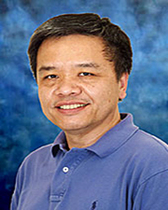
Michael X. Zhu, Ph.D.
Professor, Department of Integrative Biology and Pharmacology
University of Texas, School of Medicine, Houston
Dr. Zhu’s lab employs electrophysiology and fluorescence imaging to directly examine the function of endolysosomal channels with the overarching goal of understanding the role of these channels in organelle trafficking and the pathogenesis of LSDs. The basic mechanisms thus revealed would shed light on new ways to treat LSDs.
Current funding related to LSDs: NIH R01, GM092759, “The role of two-pore channels in integrative calcium signaling”
Email Dr. Zhu
Profile
Professor, Department of Integrative Biology and Pharmacology
University of Texas, School of Medicine, Houston
Dr. Zhu’s lab employs electrophysiology and fluorescence imaging to directly examine the function of endolysosomal channels with the overarching goal of understanding the role of these channels in organelle trafficking and the pathogenesis of LSDs. The basic mechanisms thus revealed would shed light on new ways to treat LSDs.
Current funding related to LSDs: NIH R01, GM092759, “The role of two-pore channels in integrative calcium signaling”
Email Dr. Zhu
Profile
